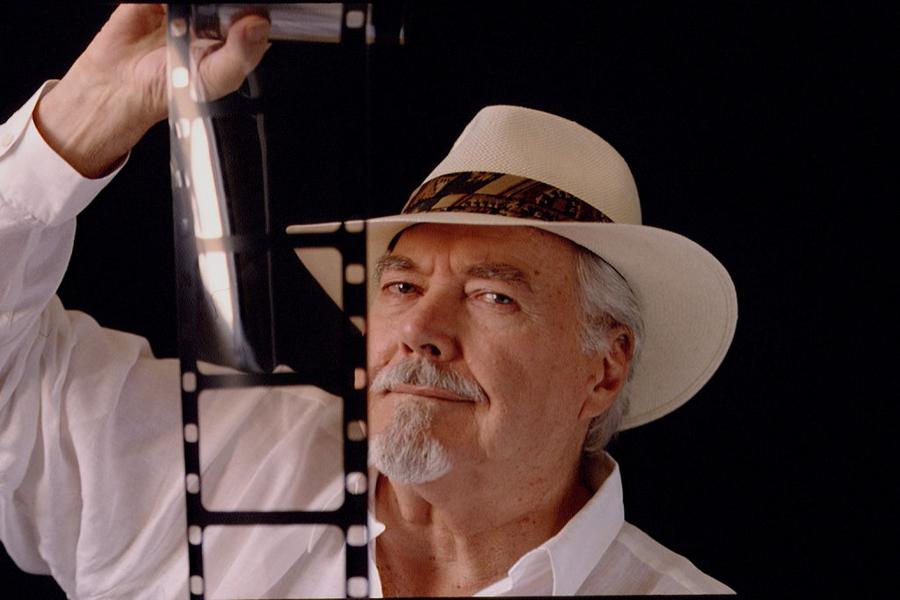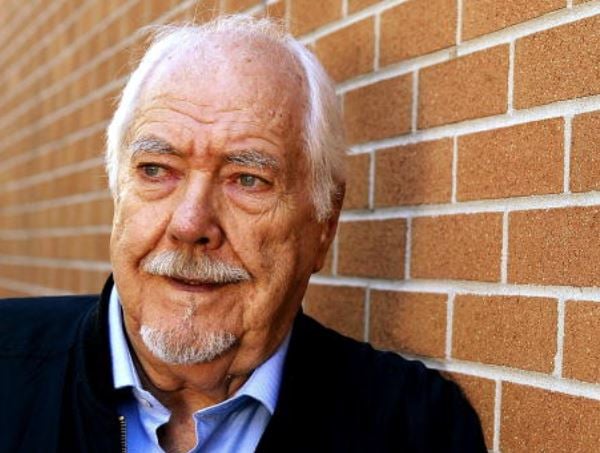What is Robert Altman's Net Worth?
Robert Altman was an American filmmaker who had a net worth of $60 million at the time of his death in 2006. Robert Altman was among the pioneering figures of the New Hollywood era. Renowned for using large ensemble casts, overlapping dialogue, and mobile camerawork, he directed such acclaimed films as "M*A*S*H," "McCabe & Mrs. Miller," "Nashville," "The Player," and "Gosford Park." Among his numerous accolades, Altman earned five Academy Award nominations for Best Director, and received an Academy Honorary Award in 2006.
Early Life and Education
Robert Altman was born on February 20, 1925 in Kansas City, Missouri to Helen, a Mayflower descendant, and Bernard, a wealthy insurance salesman. Raised Catholic, he attended Jesuit schools, including Rockhurst High School. Altman went on to attend Wentworth Military Academy in Lexington, Missouri, graduating in 1943.
Career Beginnings
After graduating from military school, Altman joined the US Army Air Forces during World War II. As co-pilot of a B-24 Liberator with the 307th Bomb Group, he flew more than 50 bombing missions in Borneo and the Dutch East Indies. Discharged in 1947, Altman moved to California and found success co-writing the story that became the basis for the RKO film noir "Bodyguard." His success encouraged him to move to New York City to become a full-time writer; however, struggling to do so, he returned to Kansas City and became a director and writer of industrial films for the Calvin Company. Meanwhile, Altman started directing plays at the Resident Theatre of the Jewish Community Center.
Television Directing
In the early 1950s, Altman began directing episodes of television programs. His earliest credits were on the DuMont drama series "Pulse of the City," which ran from 1953 to 1954. Altman next directed episodes of "The Sheriff of Cochise" and "Alfred Hitchcock Presents." He became more prolific as the years went on, directing episodes of such series as "Whirlybirds," "The Millionaire," "The Roaring 20s," "Bonanza," "Combat!," and "Maverick," among many others. In 1964, Altman directed the television film "Nightmare in Chicago," an expansion of an episode he did for the anthology series "Kraft Suspense Theatre." He would direct more television films later in his career, notably "2 by South," "The Laundromat," and "The Caine Mutiny Court-Martial." Altman also directed the political mockumentary miniseries "Tanner '88," for which he won an Emmy Award.

Robert Altman (Photo by Micheline Pelletier/Sygma via Getty Images)
Film Directing, 1957-1979
Altman made his feature film directorial debut in 1957 with the low-budget teen drama "The Delinquents," which he shot in his hometown of Kansas City. He didn't direct another film for the big screen until 1967, with the low-budget science-fiction film "Countdown." Two years after that, he directed the psychological thriller "That Cold Day in the Park." Altman went on to have his critical and commercial breakthrough with the satirical war film "M*A*S*H," released in 1970. Based on a little-known novel from the Korean War era, the film was a smash hit, winning the top prize at the Cannes Film Festival and earning five Academy Award nominations, including Altman's first for Best Director. "M*A*S*H" became the third-highest-grossing film of the year, and eventually spawned the popular television series of the same name. Altman's other 1970 film was the black comedy "Brewster McCloud." He followed that with the revisionist Western "McCabe & Mrs. Miller" in 1971. Altman subsequently directed the psychological horror film "Images" (1972), the neo-noir "The Long Goodbye" (1973), the crime film "Thieves Like Us" (1974), and the gambling dramedy "California Split" (1974).
In 1975, Altman had one of his greatest critical successes with the satirical musical dramedy "Nashville," a large ensemble film featuring numerous intertwining storylines and country and gospel music numbers. Like "M*A*S*H," the film earned five Academy Award nominations, including Best Director. Altman earned further acclaim for his next film, the 1976 revisionist Western "Buffalo Bill and the Indians, or Sitting Bull's History Lesson," which won the Golden Bear at the Berlin International Film Festival. He subsequently directed the psychological drama "3 Women," released in 1977. Altman's final three films of the decade were the satirical dramedy "A Wedding" (1978), the post-apocalyptic science-fiction film "Quintet" (1979), and the romantic comedy "A Perfect Couple" (1979), none of which were commercially successful. Still, Altman concluded the decade having firmly established himself as a pioneering figure in the New Hollywood era of filmmaking, even as he often clashed with studio heads over the artistic direction of his films.

Getty
Film Directing, 1980-2006
Altman began the 1980s with two films: "Health" and "Popeye." The latter, a musical adaptation of the famous comic strip and cartoon, was intended to increase Altman's commercial cachet following his commercial disappointments in the late 1970s. However, the production was plagued by heavy drug and alcohol use, and performed only modestly well at the box office. Now unable to secure any substantial financing from Hollywood, Altman returned to television and theater. He returned to the big screen in 1982 with "Come Back to the 5 & Dime, Jimmy Dean, Jimmy Dean," an adaptation of Ed Graczyk's play. Altman followed that in 1983 with "Streamers," an adaptation of the hit play by David Rabe. He continued adapting plays with his next three films: "Secret Honor" (1984), based on a one-man play about Richard Nixon; "Fool for Love" (1985), based on Sam Shepard's play; and "Beyond Therapy" (1987), based on Christopher Durang's play. Also in 1987, Altman finally saw the release of his teen comedy "O.C. and Stiggs," which had been shelved for many years following a chaotic production, poor test screenings, and changing studio ownership.
Altman's first film of the 1990s was the biographical drama "Vincent & Theo," about painter Vincent van Gogh. After that, he directed the Hollywood satire "The Player," based on the novel by Michael Tolkin. Hailed as a career comeback for Altman, the film earned three Academy Award nominations, including Best Director. Altman received another Best Director nomination the very next year for "Short Cuts," which also won the Golden Lion at the Venice Film Festival. His subsequent films were relatively less successful with critics; they were "Prêt-à-Porter" (1994), "Kansas City" (1996), and "The Gingerbread Man" (1998). However, Altman ended the decade on a strong note with the black comedy "Cookie's Fortune," which garnered both good reviews and box-office receipts. Although he began the 21st century with the tepidly received "Dr. T & the Women," Altman earned rave reviews with his next film, 2001's "Gosford Park." The comic murder mystery earned seven Academy Award nominations, including Altman's final one for Best Director. He subsequently directed the ballet drama "The Company," released in 2003. Altman's final film was the 2006 musical comedy "A Prairie Home Companion," based on Garrison Keillor's public radio series.
Personal Life and Death
Altman was married three times. He was wed to his first wife, LaVonne Elmer, from 1946 to 1951; they had a daughter named Christine before divorcing. In 1954, Altman married Lotus Corelli, with whom he had two sons named Michael and Stephen before divorcing in 1957. He wed his third and final wife, actress Kathryn Reed, in 1959; they remained together until Altman's passing, and had two sons named Robert and Matthew.
On November 20, 2006, Altman passed away from leukemia at Cedars-Sinai Medical Center in Los Angeles. He was 81 years of age. His personal archives were sent to the University of Michigan, where he had filmed "Secret Honor" and directed several operas. In 2014, a documentary film about his life and work, directed by Ron Mann, was released.
/2023/10/Robert-Altman.jpg)
/2011/06/Ang-Lee.jpg)
/2011/01/Brian-De-Palma.jpg)
/2013/12/mike-nichols.jpg)
/2014/06/Jason-Reitman-1.jpg)
/2012/04/sydney.jpg)
/2023/05/Gary-Numan.jpg)
/2020/10/neil-young.jpg)
/2014/09/Jarvis-Cocker.jpg)
/2021/01/Daryl-Hannah.jpg)
/2020/03/lyl.jpg)
/2024/05/Ilia-Topuria.jpg)
/2021/09/sydney-sweeney.jpg)
/2010/12/John-Fogerty.jpg)
/2010/05/dc.jpg)
/2022/03/Stephen-Stills.jpg)
/2015/05/jh.jpg)
/2023/10/Robert-Altman.jpg)
/2012/04/sydney.jpg)
/2011/06/Ang-Lee.jpg)
/2015/07/Lawrence-Kasdan-1.jpg)
/2011/01/Brian-De-Palma.jpg)
/2014/06/Jason-Reitman-1.jpg)
/2013/12/mike-nichols.jpg)